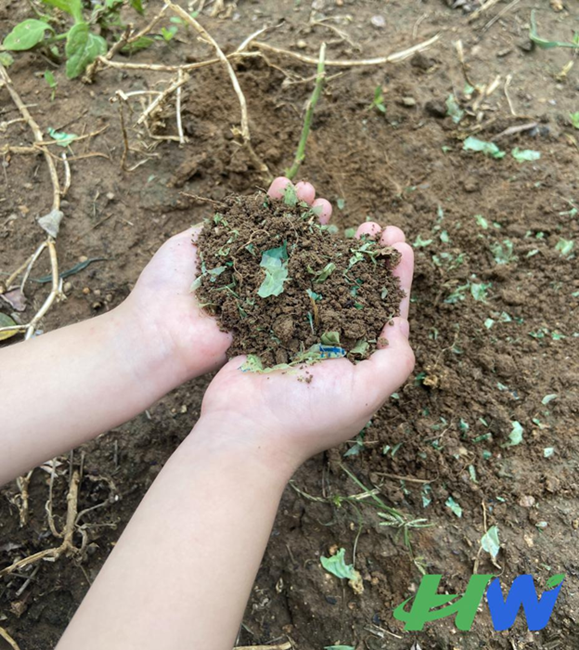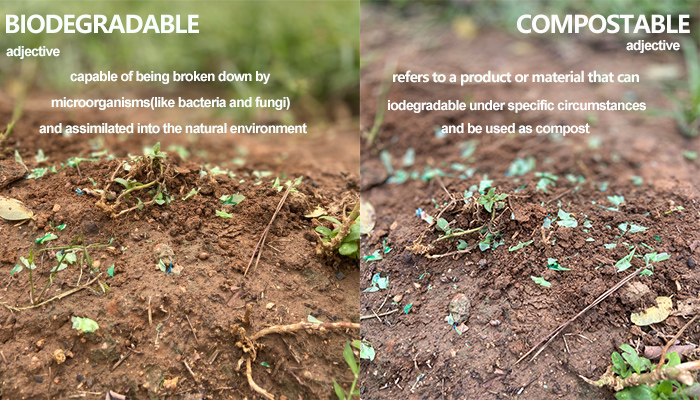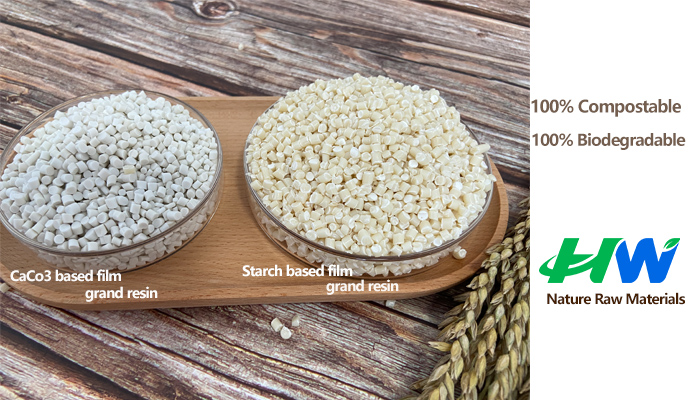
The terms' biodegradable 'and' compostable 'are frequently used everywhere, but they are often used interchangeably, mistakenly or misleadingly, adding a layer of uncertainty to those attempting to shop in a sustainable way.
In order to make truly environmentally friendly choices, it is important to understand what is biodegradable and compostable, what is not, and the differences between them.

Biodegradability refers to any substance that can be decomposed and absorbed into the natural environment by microorganisms (such as bacteria and fungi), and biodegradation is a naturally occurring process.
When an object decomposes, its original components decompose into simple components, such as biomass, carbon dioxide, and water. This process can be carried out with or without oxygen, but the time required is shorter with oxygen, just like a pile of leaves in your yard decomposing in a season.
The time for biodegradation varies from a few days (such as vegetable waste) to 500 years or more (such as plastic bags).
Biodegradation time of household items
Vegetables: 5 days to 1 month
Paper: 2-5 months
Cotton T-shirt: 6 months old
Leaves: 1 year
Nylon fabric: 30-40 years old
Aluminum cans: 80-100 years old
Polystyrene foam cup: more than 500 years
Plastic bags: over 500 years old
The duration of biodegradation depends on the chemical composition and storage method of the object, and variables such as temperature, water, light, and oxygen affect the degradation rate. Most landfills lack sunlight, air, and moisture, resulting in a significant slowdown in the biodegradation process.
Vegetable skins, eggshells, paper and garden waste can be directly biodegradable. When these items are discarded, they decompose in a relatively short period of time, so they can be absorbed into the natural environment.
In contrast, materials such as foamed plastics, plastics and aluminum are generally considered non biodegradable because they take a long time to decompose.
That is to say, most "biodegradable" consumer goods are not actually absorbed into the ground through natural biodegradation. For biodegradation, they need to create a specific set of conditions through the composting process.
The term 'compostable' refers to a product or material that can be biodegradable in a specific, human driven environment. Unlike completely natural biodegradation processes, composting requires human intervention.
During the composting process, microorganisms decompose organic matter with the help of humans, providing the necessary water, oxygen, and organic matter to optimize the conditions. The composting process usually takes several months or 1-3 years. Time is influenced by variables such as oxygen, water, light, and the type of composting environment. There are two main types of composting:
Residential composting: Residential composting involves collecting food waste into bins or piles, mixing it with yard waste, and regularly decomposing it into more basic organic matter. Due to this reason, you are unable to decompose things like meat, cheese, and fish in the residential trash can because it does not generate enough heat at all.
Commercial composting: Commercial composting involves screening and classifying organic and inorganic substances, breaking them down using chippers and grinders, and creating optimal humidity, temperature, and oxygen conditions. Therefore, commercial composting machines can decompose more complex products than household composting machines.
Unlike traditional petrochemical plastics, bioplastics are based on plants.
The manufacturing of bioplastics may have a lower carbon footprint than traditional plastics, but there are many variables and uncertainties involved.
The decomposition of bioplastics requires high temperatures that can only be obtained in industrial composting facilities. In household compost piles or landfills, they take a long time to decompose.
★ Bioplastics cannot solve the problem of marine plastics because they cannot rapidly degrade under marine conditions.
Bioplastics cannot be mixed with recyclable plastics, they must be recycled in different material streams.

If you want to reduce the impact on the environment, compostable items are a good choice. Composting an item means it won't end up in a landfill. If you compost it at home, you can use this organic matter to help the plants in your garden grow. In addition, the labeling of compostable products is usually more direct, so you can be certain that you are choosing a more environmentally friendly product.
That is to say, compostable products require certain conditions to decompose, so it is important to strive to truly compost these products instead of sending them to landfills.
If an item is identified as suitable for commercial composting, ensure that you have a facility that can handle garbage. Bioplastics have improved in some aspects compared to traditional plastics, but if not handled properly, they can still have negative impacts on the environment.
As always, the best choice is to reduce your consumption, reuse what you already have, and try to avoid disposable products as much as possible.
